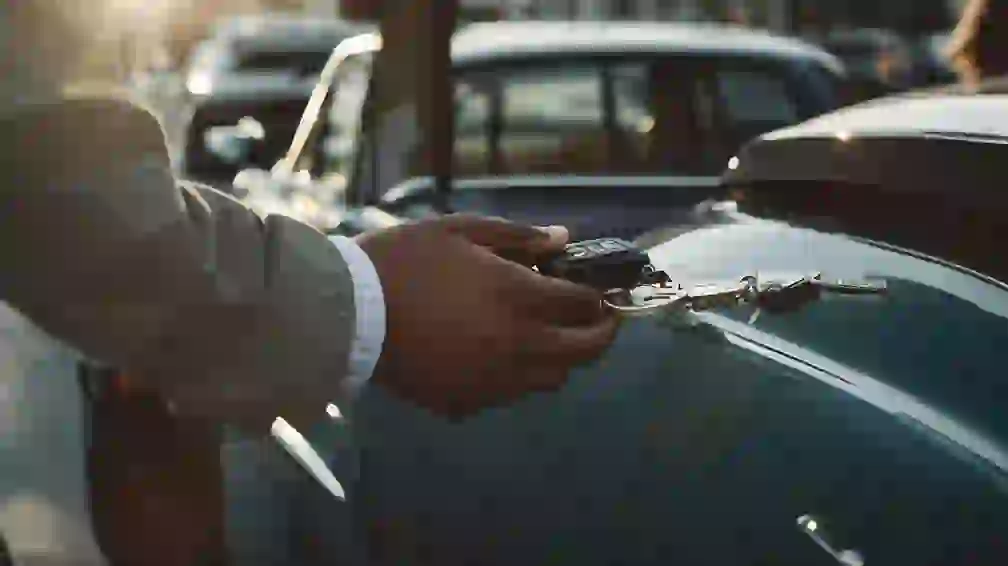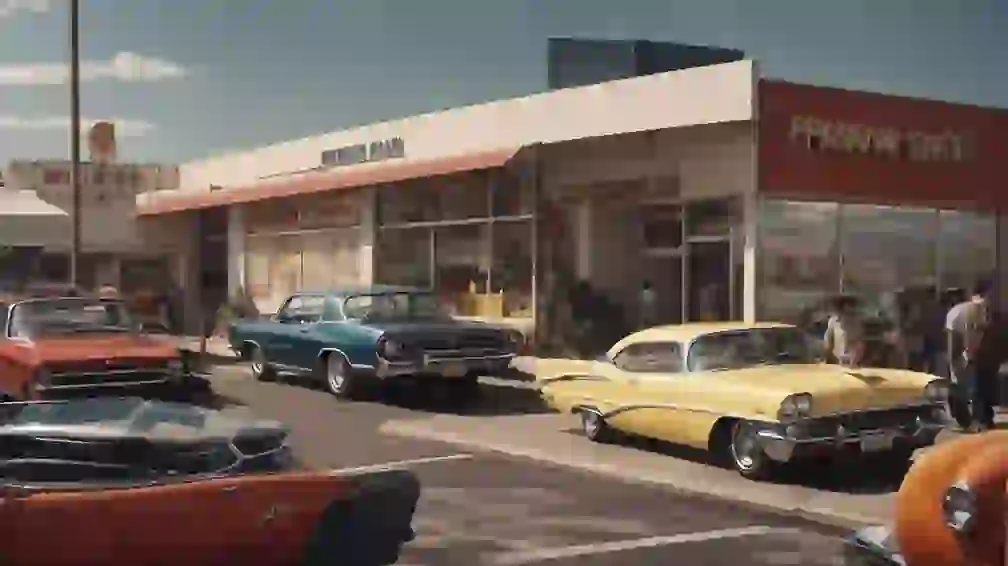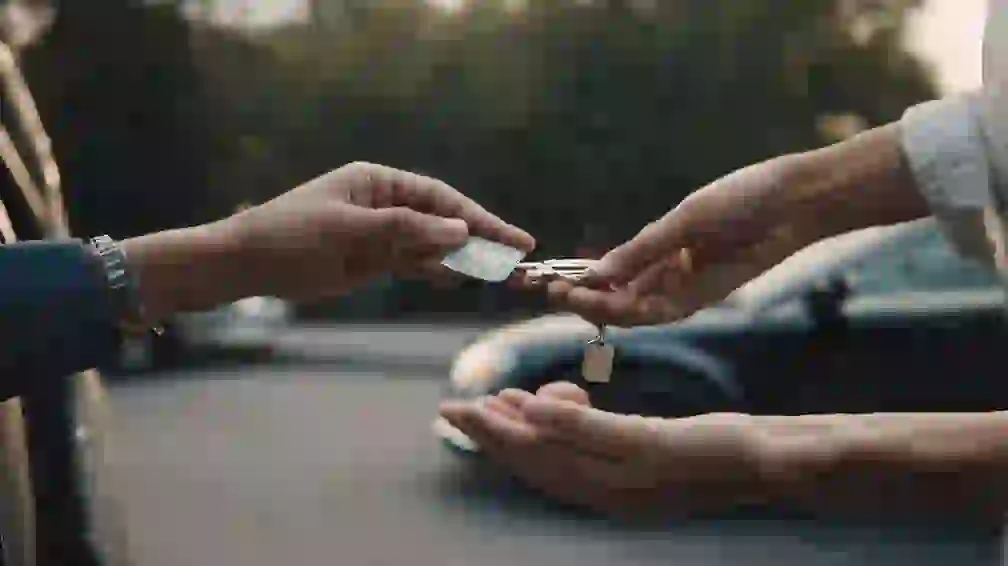How to pawn a car for cash

Pawning your car can be a real lifesaver when you’re in a financial crunch. It’s pretty straightforward – you use your car as collateral for a quick loan. Think of it as a fast cash solution, especially handy when time isn’t on your side. But remember, it’s not all sunshine and rainbows. You get the cash without needing a perfect credit score, but the trade-off includes high interest rates and the real risk of losing your car if you can’t repay the loan.
Making the decision to pawn your car isn’t something to take lightly. It’s crucial to weigh the immediate benefit of quick cash against the potential loss of your vehicle. Can you handle the repayment terms? Are you comfortable with the risks? It’s always smart to consider all your options, like personal loans or reaching out to family and friends. In the end, being fully informed is your best bet for navigating this tricky financial decision.
Key Takeaways:
- Pawning a car for cash means using your vehicle as collateral to secure a loan from a pawnshop.
- The requirements for pawning a car for cash typically include proof of ownership, valid identification, vehicle title, and registration/insurance.
- Pawning a car for cash can provide quick access to cash without a credit check or impact on credit score, but carries risks such as losing ownership of the vehicle and high interest rates.
What Does it Mean to Pawn a Car for Cash?

Pawning your car for some quick cash is all about using your ride as a security deposit for a loan from a pawnshop or a lender.
Get lender approval in as fast as 5 minutes
How Does a Car Pawn Loan Work?
A car pawn loan involves the assessment of the vehicle’s value, an appraisal or inspection, and the loan disbursement based on the vehicle’s equity.
When opting for a car pawn loan, the first step typically involves providing information about the vehicle to the lender, who then conducts an appraisal or inspection to determine its value. The lender may refer to sources like Kelley Blue Book to assess the market value of the vehicle before deciding on the loan amount. The vehicle’s equity, which refers to the difference between its market value and any outstanding loans or liens, plays a crucial role in determining the loan amount.
Once the appraisal or inspection is complete, the lender will offer a loan amount based on the vehicle’s equity. The borrower can then choose whether to accept the loan offer and provide the necessary documentation. Upon acceptance, the loan disbursement takes place, typically in the form of a check or direct deposit, allowing the borrower to access the funds and retain possession of the vehicle during the loan term.
What Are the Requirements for Pawning a Car for Cash?
Pawning a car for cash necessitates providing proof of ownership, valid identification, the vehicle title, and relevant registration and insurance documents.
Typically, the lender, such as TitleMax®, may require you to present your state-issued ID, social security number, a valid driver’s license, and a utility bill as proof of residence. The vehicle’s title, obtained from the DMV, is essential to prove that you are the legal owner. Additionally, vehicle registration and proof of insurance are key documents to demonstrate the vehicle’s legitimacy and eligibility for pawning.
Proof of Ownership
Proof of ownership for pawning a car encompasses demonstrating legal possession and entitlement to the vehicle.
When pawning a car, it is crucial to present documentation that validates your legal right to the vehicle. This documentation can take various forms, such as the vehicle’s title, registration documents, or a notarized bill of sale.
The title of the vehicle is perhaps the most common and widely accepted proof of ownership, as it explicitly identifies the owner of the car. Ensuring that the vehicle’s registration is current and matches the presented ownership documentation is essential for establishing legal possession.
Valid Identification
Valid identification is a crucial requirement for pawning a car, ensuring the verification of the owner’s identity and personal details.
When pawning a car, presenting valid identification is not only a legal obligation but also a security measure. The process of verification plays a critical role in preventing fraudulent activities and protecting the interests of both the pawnshop and the customer.
Personal details such as name, address, and contact information are essential for establishing a valid and trustworthy transaction, ensuring that the rightful owner is engaging in the pawn process. Therefore, the accuracy and authenticity of the identification are fundamental in upholding the integrity of the entire transaction.
Vehicle Title
The vehicle title serves as a key document for pawning a car, providing legal proof of ownership and facilitating the loan process.
Without a valid vehicle title, it can be challenging for individuals to secure a pawn loan using their car as collateral. The title signifies the owner’s legal right to the vehicle, establishing confidence for the lender to proceed with the loan agreement.
The title serves as a safeguard for the lender, ensuring that the collateral holds value and can be used to cover the loan amount if necessary. It acts as a crucial link between the borrower, the vehicle, and the financial transaction, playing a pivotal role in the entire pawn process.
Vehicle Registration and Insurance
The vehicle’s registration and insurance documents are essential requirements for pawning a car, ensuring compliance with legal and safety standards.
Without these crucial documents, individuals may face legal repercussions and risk their safety on the road.
Vehicle registration serves as proof that the car has met all necessary requirements for operation and taxation. On the other hand, insurance documents provide financial protection in case of accidents or damage. These documents not only validate the ownership but also demonstrate the commitment to safety regulations and responsible driving practices.
What Are the Benefits of Pawning a Car for Cash?
 Pawning a car for cash offers the advantage of quick access to funds without the need for a credit check, providing financial flexibility through reputable services like CarBrain.
Pawning a car for cash offers the advantage of quick access to funds without the need for a credit check, providing financial flexibility through reputable services like CarBrain.
Emergencies and unexpected financial needs can arise at any time, and pawning a car for cash ensures that individuals can swiftly secure the money they require without the hassle of credit checks or lengthy approval processes. This method enables individuals to use their vehicle as collateral, unlocking its monetary value without selling it, maintaining possession, and continuing to use it after repaying the loan.
Reputable services such as CarBrain provide a transparent and secure process, offering fair evaluations of the vehicle’s worth and ensuring a smooth transaction. This approach allows individuals to address urgent financial requirements with minimal stress and without compromising their credit history, making it an attractive solution for short-term cash needs.
Quick Access to Cash
Pawning a car for cash provides a swift and convenient means of obtaining immediate funds, offering financial flexibility and addressing urgent monetary needs.
When facing unexpected expenses or a temporary financial shortfall, pawning a car can alleviate the strain by allowing individuals to access money quickly, without the complexities of traditional loan processes. This method effectively leverages the value of the vehicle, making it an attractive option for those seeking expedited access to cash.
The flexibility offered by car pawning allows borrowers to retain possession of their vehicle while using it as collateral. This unique characteristic enables them to continue using their car for daily activities, providing a level of convenience that traditional loan options may not accommodate.
Your lender can fund your loan as soon as the next business day
What Are the Risks of Pawning a Car for Cash?
The risks of pawning a car for cash include the potential loss of vehicle ownership and exposure to high interest rates, necessitating careful consideration of the borrowing terms and conditions.
When a vehicle is pawned for cash, the borrower risks losing ownership of the car if they fail to repay the loan within the agreed timeframe. The high interest rates associated with car pawning can lead to financial strain, making it essential for individuals to evaluate the risk factors involved.
Understanding the terms and conditions of the borrowing agreement is crucial to avoid any potential pitfalls and ensure a smooth and manageable borrowing experience.
Losing Ownership of the Vehicle
One of the primary risks of pawning a car for cash is the potential loss of ownership if the loan conditions are not met within the specified terms, warranting careful assessment of the borrowing agreement.
When an individual decides to pawn their car, they essentially use it as collateral for a loan. If the borrower defaults on the loan, the lender may have the right to take possession of the vehicle as a means of recouping the funds. This can result in the borrower no longer owning the car, which can have significant implications.
It’s crucial for anyone considering this option to thoroughly understand the terms and potential consequences of default. This understanding can help mitigate the risk of losing ownership and make informed decisions about car pawning.
High Interest Rates
Pawning a car for cash may involve high interest rates, necessitating thorough evaluation of the loan terms and the overall cost of borrowing against the vehicle’s value.
It’s essential for individuals considering this option to carefully assess the implications of the interest rate structures. The impact of high interest rates can significantly affect the total amount repaid and the affordability of the loan. Borrowers should also compare different interest rate options to understand the potential variations in the total repayment.
Understanding the annual percentage rate (APR) and any associated fees provides a comprehensive picture of the total borrowing costs. Therefore, before proceeding with pawning a car, it’s crucial to thoroughly evaluate the loan terms and the potential impact of high interest rates on the overall financial commitment.
What Happens if You Can’t Repay the Loan?

If there is loan repayment challenges, individuals may have the option to extend or renew the loan, or they risk defaulting on the loan and potentially losing the pawned vehicle.
When facing difficulties in repaying the loan, opting for a loan extension can provide breathing room by granting additional time for repayment, albeit with added interest. Defaulting on the loan can lead to the lender taking possession of the pawned vehicle, which could severely impact the individual’s mobility and financial stability. It’s crucial for individuals to carefully consider these options and communicate openly with the lender to explore viable solutions.”
Extension or Renewal of the Loan
In cases of repayment challenges, individuals may have the opportunity to discuss an extension or renewal of the loan terms with the pawnbroker or lender, providing a temporary solution to the financial obligation.
During the negotiation process, individuals can express their specific financial constraints and explore the possibility of extending the loan duration or revising the repayment schedule. This can involve restructuring the terms to better align with the borrower’s current situation, offering a more manageable way to settle the outstanding debt.
When pursuing a loan renewal, it is essential to transparently communicate any changes in income or unforeseen expenditures that may have impacted the ability to repay the loan according to the initial agreement. By proactively addressing these challenges, borrowers can work towards a mutually beneficial arrangement with the lender, ensuring a more sustainable path to resolving the financial commitment.
Defaulting on the Loan
Defaulting on the loan can result in the loss of the pawned vehicle, as the lender or pawnbroker may initiate repossession proceedings as per the agreement terms.
Once repossession proceedings are initiated, the lender has the right to seize the vehicle to recover the outstanding debt. The consequences of defaulting on a car pawn loan extend beyond the loss of the vehicle, as it can also lead to a negative impact on the borrower’s credit score and financial stability.
In some cases, the lender may sell the repossessed vehicle at an auction to recoup the remaining balance of the loan. If the sale does not cover the full amount owed, the borrower may still be liable for the deficiency balance, adding further financial burden.
FAQ’s
Common questions about pawning a car for cash include inquiries about auction procedures, eligibility criteria, and the impact of loan defaults on the vehicle’s ownership.
When a car is pawned for cash, it may eventually go to auction if the borrower defaults on the loan. The auction process typically involves the vehicle being sold to the highest bidder, and the proceeds are used to pay off the remaining loan balance.
As for eligibility, most pawn shops require the vehicle to be fully owned by the borrower with no outstanding liens or financing. Loan defaults can lead to the loss of ownership, as the pawn shop gains legal possession of the vehicle.
Frequently Asked Questions
What does it mean to pawn a car for cash?
Pawning a car for cash refers to the process of using your car as collateral for a loan from a pawn shop. The pawn shop will hold onto your car until you pay back the loan, at which point you will receive your car back.
Can I pawn any car for cash?
Most pawn shops will accept any make or model of car as long as it is in working condition and you have a clean title. However, some pawn shops may have specific requirements, so it’s always best to check with them before bringing in your car.
How much money can I get when I pawn my car for cash?
The amount of money you can get when you pawn your car for cash will depend on the value of your car and how much the pawn shop is willing to lend you. Generally, you can expect to receive anywhere from 30-50% of the car’s value.
Do I need good credit to pawn my car for cash?
No, you do not need good credit to pawn your car for cash. Since the car is being used as collateral, your credit score is not a determining factor in whether or not you can receive a loan.
How long do I have to pay back the loan when I pawn my car for cash?
The length of time you have to pay back the loan will vary depending on the pawn shop you use. Typically, you will have anywhere from 30-90 days to pay back the loan, but it’s important to clarify this with the pawn shop before agreeing to the loan.
What happens if I can’t pay back the loan on time when I pawn my car for cash?
If you are unable to pay back the loan on time, the pawn shop will take ownership of your car and sell it to recoup their losses. It’s important to carefully consider the terms and conditions of the loan before pawning your car for cash to ensure you can meet the payments.
Jer is a Consultant & go-to guy for startups and founders. Expert with both Online and storefront B2C lending strategies. Jer at Trihouse Consulting is your Co-Founder, consultant, investor... Start-ups in installment, payday loan, car title lending, line of credit... Storefront to Online transition is my specialty. Focused on operations, marketing, Internet models, tribe, brick-n-mortar development, website development, regulatory & compliance, and State and Tribe licensed lending models. Banking, ODFI, ACH, ICL, Debit, Credit.
TrihouseConsulting@gmail.com 702-208-6736 (PDT)
Linked In profile
Mentioned in Digital Groth
Clarity FM
Trihouse Consulting
How to start a payday loan
zoom info
Startups.com
IWV Pro
Leaning Rock Finance
payday and paycheck loans
Automobile Pawn
Quora
Medium
RocketReach


